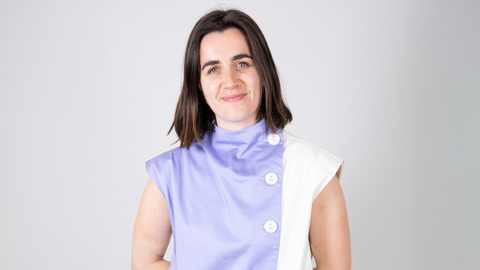The Master’s-level Management of Risk and Quality (MRQ) degree prepares students for leadership roles in managing crises, quality and risks in any sector.

The Master’s-level Management of Risks and Quality (MRQ) is a fifth-year program that prepares students for leadership roles in managing crises, quality and risks in any sector.
It is a joint program attended by Sciences Po students from the seven Sciences Po network schools, first-time university students in first-year Master’s programs and continuing education students (employees on educational leave, for example).
It is also flexible: a certain number of enrolled students can apply to attend a major partner school such as École Centrale Paris or HEC Montréal.
With the exception of students who complete this degree at the same time as another, this Master’s-level degree is completed on an apprenticeship basis over a ten-month period, with one week of classes every month at Sciences Po Rennes. Certain classes may be taught in English.
The program can accommodate up to twenty students and is one of three second-year Master’s programs of the Sciences Po economics and finance department. It is also open to students from other departments.
With the exception of students completing another degree at the same time, (see above), the program begins in September. The first month includes two weeks of classes to review the basics learned in first year (UE1). From October to June, apprentices have one week of advanced classes per month and the rest of their learning time is spent at a company (preferably as part of an apprenticeship contract).
Program topics are taught in three different formats:
- theoretical and technical classes
- applied learning
- case studies and summary reports
In June, students defend a dissertation prepared during the year. This dissertation is based on actual situations encountered by the student and must include a self-evaluation of the student’s career goals and the content of the program.
The program consists of six modules (UE):
- UE1 - Review of the basics: Basic accounting, Introduction to corporate finance, management techniques, corporate law and taxation.
- UE2 - Information system management: Financial and strategic analysis, Information, banking and insurance systems security.
- UE3 - Legal and fiscal management: Environmental law, Risk and insurance law, International taxation (optimization/ evasion), European and competition law
- UE4 - Human resources and auditing: Management and human resources, Risk and quality auditing, certification.
- UE5 - Statutory auditing, oversight and compliance: Anglo-American accounting, Ethics and professional liability, internal oversight models.
- UE 6 - International issues: Geopolitics of risk, counter-intelligence and anti-terrorism, country-specific risks.
- Maritime and sea-related careers: Thanks to its location on France’s north-western coast in Brittany, the MRQ Master’s degree is a window onto the risks and opportunities of maritime and sea-related issues such as navigation, off-shore activities, marine ingredients, maritime and energy conflicts.
- Careers in operations: in banking, insurance, industry (classified facilities), civil defense, the judicial system, financial policing, in cyclical industries (luxury goods, air transport, hospitality), high tech (IT, aeronautics, the space and automotive industries), pharmaceuticals, agri-food, biotechnology and more.
- Functional careers: in quality control, risk prevention, systems analysis, security, surveillance and good governance, business intelligence, counterfeiting and looting, international trade and relations with customs authorities, civil defense and more.
- Careers in auditing: auditor (finance, information systems, taxation etc.), facility safety specialist, quality auditor, insurance consultant, wealth manager, risk mapping consultant, specialist in financial, human and environmental ratings, corporate legal counsel.
- First-time first-year Master (M1): incoming students take the entrance exam in fourth year.
- First-time second-year Master (M2): students must have obtained 240 ECTS credits, equivalent to the first four years of the Sciences Po program. Admission is based on an application and an interview for qualified applicants.
- Continuing education, second-year Master (M2): applicants must have completed at least four years of undergraduate study and submit a career-related project plan or experience related to the topics covered by the Master’s-level degree.
Second-year Master admission:
February 19, 2024 to April 29, 2024: Click here to register and download the application file.
+ The completed application file and supporting documents should be emailed as a single PDF to the address indicated on page 2 of the file.
If your application is accepted, you may be contacted for an interview with the program director(s).



